Pediatric Sleep Disorders
Pediatric Sleep Disorders
Pediatric Sleep Disorders
Sleep is as important for growing children as nutrition and exercise. If your child is struggling with sleep problems, they may be at risk for behavioral / medical issues including lower school performance, focus and attention, mood issues and obesity or delayed growth. Getting them the care they need is crucial to set them on a path for success later in life.
Our Sleep Disorders Program at Children's Health℠ is accredited by the American Academy of Sleep Medicine which recognizes our high standards of care to treat sleep disorders. You can be confident that your child will receive an accurate diagnosis and the best treatment possible to help resolve their sleep issues.
Conditions We Treat
- Pediatric circadian rhythm disorder
- Pediatric hypersomnia (excessive daytime sleepiness)
- Insomnia in children
- Pediatric narcolepsy
- Pediatric parasomnias
- Pediatric periodic limb movement disorder (PLMD)
- Pediatric sleep disordered breathing (SDB)
- Pediatric snoring
- Pediatric restless leg syndrome (RLS)
- Pediatric delayed sleep phase disorder (DSPD)
- Pediatric obstructive sleep apnea (OSA)
Treatments and Services
- Pediatric continuous positive airway pressure (CPAP)
- Pediatric sleep apnea surgery
- Exercise and pediatric sleep apnea
- Pediatric sleep evaluation
- Pediatric sleep study
- Pediatric dietary changes for sleep apnea
- Pediatric oxygen titration
- Bilevel Positive Airway Pressure (Bi-PAP) Titrations
- Continuous Positive Airway Pressure (CPAP) Titrations
- Maintenance Wakefulness Test
- Multiple Sleep Latency Test (MSLT)
- Polysomnogram
- Tracheostomy Tube Removal
Sleep Studies Lab
The Sleep Studies Lab at Children’s Health is your family’s trusted partner in diagnosing, treating and monitoring your child’s sleep challenges.
We are the only dedicated pediatric sleep center in North Texas accredited by the American Academy of Sleep Medicine that offers comprehensive treatment for all forms of sleep disorders.
Sleep technologists performing the sleep studies have highly specialized training and include strong backgrounds in neurophysiology, respiratory therapy and/or sleep technology.
Collaborative specialty care for more than a century
For more than 100 years, Children’s Health has put children first. Our goal has always been to offer children the finest care, backed by cutting-edge research and nationally recognized physicians.
All the providers are faculty at UT Southwestern and are actively involved in research, with some of our recent studies focusing on narcolepsy and obstructive sleep apnea.
When your child is being treated in our Sleep Disorders Program, you will have access to a team of experts trained in the various functions impacted by and during sleep. This committed team includes:
Sleep does not come easy for 20% - 30% of children in the U.S., causing other health problems including obesity and type 2 diabetes.
Neurophysiologist
Neurologists
Otolaryngologist (ENT)
Pediatricians and nurse practitioners
Psychologists
Pulmonologists
Registered sleep technologists
Respiratory therapists
Sleep medicine provides answers for sleep disorders
Sleep Medicine studies, diagnoses and provides treatment plans to address sleep disorders. If your child is having problems staying awake or sleeping fully, there are several symptoms to look for that indicate they might need an evaluation (sleep study) conducted in the sleep studies lab.
The Sleep Medicine team will read the data from the evaluation and determine how the factors work together and influence other systems. They will discuss the findings with your family and create a treatment plan that works for your child. This may include follow-up, a therapeutic device or additional appointments with a specialist – like a pulmonologist if there are underlying respiratory issues.
Our Sleep Studies Lab diagnoses and develops care for children with sleep issues and other multi-symptom disorders
Our experienced team knows that sleep issues can impact multiple bodily functions. It can become especially complex when children with chronic conditions or multiple symptoms have problems sleeping or staying awake during the day. It can take a toll on their daily lives, and sometimes make their symptoms worse. We provide comprehensive care that addresses how sleep disorders can impact children with:
Autism, including desensitization
Behavioral health issues, including depression, ADHD and anxiety
Hospitalization (sleep issues while in the hospital)
Neuromuscular conditions (i.e. muscular dystrophy)
Collaborative specialty care for more than a century
For more than 100 years, Children’s Health has put children first. Our goal has always been to offer children the finest care, backed by cutting-edge research and nationally recognized physicians.
All the providers are faculty at UT Southwestern and are actively involved in research, with some of our recent studies focusing on narcolepsy and obstructive sleep apnea.
When your child is being treated in our Sleep Disorders Program, you will have access to a team of experts trained in the various functions impacted by and during sleep. This committed team includes:
Neurophysiologist
Neurologists
Otolaryngologist (ENT)
Pediatricians and nurse practitioners
Psychologists
Pulmonologists
Registered sleep technologists
Respiratory therapists
Sleep medicine provides answers for sleep disorders
Sleep Medicine studies, diagnoses and provides treatment plans to address sleep disorders. If your child is having problems staying awake or sleeping fully, there are several symptoms to look for that indicate they might need an evaluation (sleep study) conducted in the sleep studies lab.
The Sleep Medicine team will read the data from the evaluation and determine how the factors work together and influence other systems. They will discuss the findings with your family and create a treatment plan that works for your child. This may include follow-up, a therapeutic device or additional appointments with a specialist – like a pulmonologist if there are underlying respiratory issues.
Our Sleep Studies Lab diagnoses and develops care for children with sleep issues and other multi-symptom disorders
Our experienced team knows that sleep issues can impact multiple bodily functions. It can become especially complex when children with chronic conditions or multiple symptoms have problems sleeping or staying awake during the day. It can take a toll on their daily lives, and sometimes make their symptoms worse. We provide comprehensive care that addresses how sleep disorders can impact children with:
Autism, including desensitization
Behavioral health issues, including depression, ADHD and anxiety
Hospitalization (sleep issues while in the hospital)
Neuromuscular conditions (i.e. muscular dystrophy)
Meet the Care Team
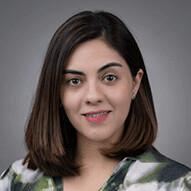 Fayruz Araji Villatoro, MDPediatric Pulmonologist
Fayruz Araji Villatoro, MDPediatric Pulmonologist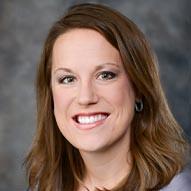 Michelle Caraballo, MDPediatric Pulmonologist and Sleep Medicine
Michelle Caraballo, MDPediatric Pulmonologist and Sleep Medicine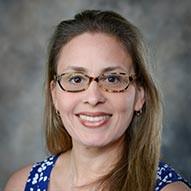 Tanya Martinez-Fernandez, MDPediatric Pulmonologist/Sleep Medicine
Tanya Martinez-Fernandez, MDPediatric Pulmonologist/Sleep Medicine S. Kamal Naqvi, MDPediatric Pulmonologist/Sleep Medicine
S. Kamal Naqvi, MDPediatric Pulmonologist/Sleep Medicine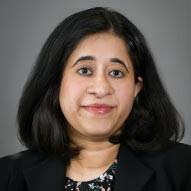 Aarti Shakkottai, MDPediatric Pulmonologist
Aarti Shakkottai, MDPediatric Pulmonologist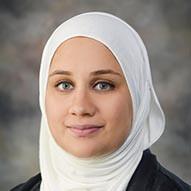 Anna Wani, MDPediatric Sleep Medicine Specialist
Anna Wani, MDPediatric Sleep Medicine Specialist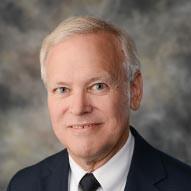 W. David Brown, PhDPediatric Psychologist - Sleep Medicine
W. David Brown, PhDPediatric Psychologist - Sleep Medicine Shannon Brooks, APRN, PNP-PCNurse Practitioner - Sleep Disorders
Shannon Brooks, APRN, PNP-PCNurse Practitioner - Sleep Disorders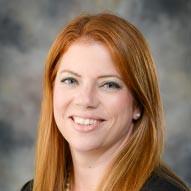 Annie Kincaid, APRN, FNPNurse Practitioner - Pulmonology
Annie Kincaid, APRN, FNPNurse Practitioner - Pulmonology- MRMaria Rodriguez, APRN, PNP-PCNurse Practitioner - Pulmonology
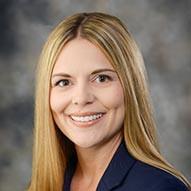 Rachel Rosen, APRN, PNP-PCNurse Practitioner - Sleep Disorders
Rachel Rosen, APRN, PNP-PCNurse Practitioner - Sleep Disorders- AMAnniella May, LPCLPC


